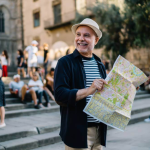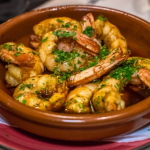Planning your solo travel budget is a crucial part of preparing for any trip, and it’s the initial step in the process.
While I’d love to have unlimited funds for travel, I also want to avoid coming back with debt and delaying future trips. Having a practical travel budget allows me to achieve this balance.
I believe I’m quite skilled at planning travel within various budget constraints. Whether it’s a frugal journey or a luxurious one, proper research and thoughtful planning are essential to maximize the experience.
Now, let me share my approach to travel budgeting, which you can use for your own upcoming trips.
1. Get a free tool to plan your travel budget!
Tired of spreadsheets and calculator headaches? Ditch the stress and download our free travel budget tool! Imagine entering your dream trip costs and watching a live summary adjust as you add flights, hotels, and even souvenirs, all while knowing you’re staying within reach—no more late-night number crunching – just pure wanderlust planning joy.
2. Don’t forget transportation!
There are two main parts to consider: getting to your destination and moving around once you’re there.
Getting there:
- Check out Flightnetwork.com for flight deals.
- You can also look for deals on buses, trains, or car rentals. Don’t forget to factor in gas and insurance if renting a car.
Getting around:
- Use Rome2Rio.com to estimate bus, train, taxi, or public transportation costs. This helps you budget for exploring your destination!
3. Figure out how much you want to spend on staying there
Pick an average nightly price you’re comfortable with. Think about what kind of places you’d like to stay in (hostels, hotels, fancy resorts) and check their prices to get an idea.
Multiply that price by the number of nights you’ll be staying. This gives you your total accommodation budget.
4. Food: How much you spend really depends on what you like to eat.
Fancy celebrity chef restaurants? Budget big! These can be expensive and might require booking in advance.
Happy with picnics and street food? You’ll save a lot! Food is flexible, so you can mix it up:
- Save: Pack picnics with grocery store finds.
- Splurge: Treat yourself to a special restaurant experience.
No matter your style, you can make food fit your budget! Enjoy your culinary adventures!
5. Don’t forget about fun things to do!
Whether it’s kayaking or a Broadway show, trips usually involve some entertainment. Remember to budget for these activities too! Bonus tip: buying tickets in advance can often be cheaper.
Looking for free or cheap things to do? We’ve got you covered! Check out our guides for popular cities like London, Paris, Sydney, and New York for ideas that won’t break the bank.
6. Pack some extra cash for the little things
Think bus fares, snacks, souvenirs, or sunscreen – all those small expenses that add up. Include a “walking-around money” fund in your budget to cover these unexpected needs.
7. Travel insurance: Don’t skip it!
I think it’s super important to get travel insurance. It protects you from unexpected events like medical emergencies or flight cancellations.
8. Souvenirs: Shop till you drop (or not!)
Not everyone needs a souvenir budget, but if you do, make sure to set some aside! Shopping in a different currency? This article helps: [link to “Your Currency or Theirs?”].
9. Treat yourself! (But plan for it)
Vacations are about having fun, so don’t feel like you have to stick to a super strict budget. Set aside some “treat yourself” money for spontaneous adventures or that special something you find. I like to budget at least 15% for these surprises!
Traveling solo means you get to decide what matters most!
Think about what makes you feel stressed. Would staying in a fancy hotel make you worry about money? Would a super expensive bike worry you about theft? Don’t choose things that stress you out, even if they seem tempting.
Instead, think about what sparks joy! You can eat simple meals in Italy and save up for amazing shoes. Maybe stay in a hostel to splurge on a Michelin-starred dinner.
Being budget-savvy is about understanding your limits, knowing what stresses you, and choosing what really matters to you. Remember, it’s your adventure, so make it your own!







